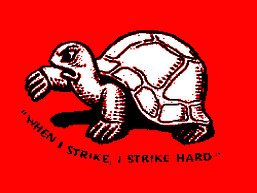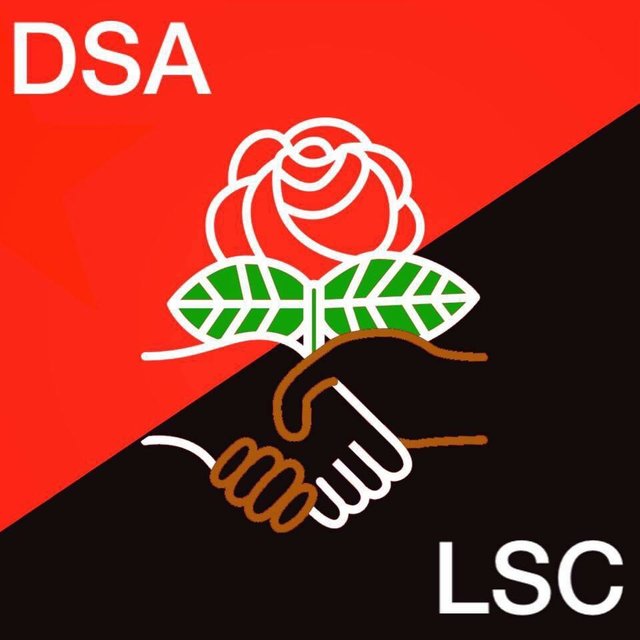
"It is easy to say, Abolish the State ; but the State will sell you up, lock you up, blow you up, knock you down, bludgeon, shoot, stab, hang in short, abolish you, if you lift a hand against it. Fortunately, there is, as we have seen, a fine impartiality about the policeman and the soldier, who are the cutting edge of the State power. They take their wages and obey their orders without asking questions. If those orders are to demolish the homestead of every peasant who refuses to take the bread out of his children's mouths in order that his landlord may have money to spend as an idle gentleman in London, the soldier obeys. But if his orders were to help the police to pitch his lordship into Holloway Gaol until he had paid an Income Tax of twenty shillings on every pound of his unearned income, the soldier would do that with equal devotion to duty, and perhaps with a certain private zest that might be lacking in the other case. Now these orders come ultimately from the State meaning, in this country, the House of Commons. A House of Commons consisting of 660 gentlemen and 10 workmen will order the soldier to take money from the people for the landlords. A House of Commons consisting of 660 workmen and 10 gentlemen will probably, unless the 660 are fools, order the soldier to take money from the landlords for the people. With that hint I leave the matter, in the full conviction that the State, in spite of the Anarchists, will continue to be used against the people by the classes until it is used by the people against the classes with equal ability and equal resolution."―George Bernard Shaw (The Impossibilities of Anarchism)
The revolutionary cries for the abolition of the State, and either its replacement with a different sort of State or with a stateless social order. The conservative plants his heels firmly in the dirt and refuses to budge. The revolutionary will overthrow the existing social order in order to usher in a new age of liberty and justice. The conservative is so afraid of untested theories and new experiments that he will do everything in his power to hold up progress and perpetuate the status quo. Revolutionaries with robust ideologies, such as Marxists and anarchists, have occasionally upset the status quo by overthrowing the existing State, or else by trying to take it over and fundamentally altering the institutions of society rather quickly. When a revolution or a coup d'état occurs, the people's faith in social institutions is shaken. This can cause a lot of social and economic woes. If there are poor people who usually survive off of government welfare, these people may resort to looting or theft. Having lost faith in law-enforcement, money, and the courts, businessmen may close their shops, stop honoring their contracts, etc. Conservatives, like François-René de Chateaubriand and Edmund Burke, have been so afraid of the socioeconomic disasters that accompany revolutions that they have erred in the opposite direction. The conservatives don't want to prevent progress altogether, but they will slow progress down to such an extent that it will actually cause more people to become revolutionaries. At the same time, as the revolutionary movement becomes more radical, the conservatives will become more reactionary. Conservatives and revolutionaries breed each other and go hand in hand.

Radical republicans and social democrats, on the other hand, are highly progressive but not revolutionary. The radical republican or social democrat will push for sensible reforms. Once those reforms are implemented and proven to work, the conservative movement will gradually cease to oppose them. The conservative opposes things that are untested and unfamiliar to them, but they will not be as opposed to the same policies or institutions after they have been established for a decent period of time. When there is a monarchy, conservatives will oppose the idea of creating a republic. However, once the republic is established, they will just as strongly oppose the return to a monarchy. Since we already have a republic, the goal of the libertarian social democrat should be to gradually reform society along libertarian and egalitarian lines, one reform at a time. If we introduce one reform at a time, we will soon enough have a libertarian and egalitarian society, and no one will oppose it much. However, if we seek to change society too quickly, rather than step-by-step, changing policies and public opinions simultanouesly and gradually, then we will find that our haste causes too much discomfort and uncertainty, thereby breeding more reactionaries. Although the goals of revolutionaries are often admirable, their revolutions seldom bring about the progress for which we all hope. Are the people more free with the CNT-FAI, EZLN, and YPJ/YPG than under the regimes that these groups wish to replace? The people may have more morale and solidarity when these libertarian socialist groups are in control, but their lives are often not much better―sometimes, actually worse―than they were under the State that the coup, revolution, or civil war has brought tumbling to the ground. Although Saddam Hussein was a terrible despot, homosexuals and Christians were much better off under the protection of his regime than they were when the collapse of the State allowed Muslim extremists to torture and murder them without any repercussions. This is no defense of despotism or the status quo. I merely mean to emphasize the fact that eliminating one injustice by force may actually bring about more injustice. There may be occasions when revolution is necessary, but there are other―perhaps more frequent―occasions when revolution is positively evil and only multiplies injustices and increases suffering.

If you live in a society that does not have somewhat functional democratic institutions, perhaps outright revolution or a coup are the only options. However, most of the world today has democracy to some extent. Of course, these democracies are greatly flawed and need to be made better. Nevertheless, societies with democratic institutions allow the people a mechanism to reform the State through the electoral process without resorting to rebellion and outright violence. Of course, it is also the case that democratic reforms are everywhere and always predicated on mass protests and civil disobedience. The positive reforms in our society―e.g. abolition of slavery, voting rights for women, abolition of segregation, creation of a minimum wage, creation of OSHA, et al.―were actually achieve more through anarchistic means than through formally "democratic" means. The true ballot box is not the voting booth as much as the protest rally! You can vote for politicians to change things, but it never works unless you keep their feet to the flames! The social democrat, therefore, is neither a revolutionary anarchist or a reactionary conservative. He is a little bit of both. The radical republicans recognize the need to vote for representatives who are likely to act ethically and push through sensible reforms, but they also recognize that even the best people have a tendency to be corrupted by power. The social democrat sees that true democracy is only possible when there is a just balance of electoral action and anarchistic direct action.
At the same time, I must say that I wish for a great deal more emphasis to be placed upon the idea of liberty. While I am a social democrat, I am also a libertarian. I follow in the footsteps of Herbert Spencer, Benjamin Tucker, and John Rawls in defining the "law of equal liberty" as being of utmost importance for a just society. All individuals should be granted the greatest freedom possible and compatible with equal liberty being granted to all other members of society. Following a Rawlsian analysis, I do not think it acceptable to trade basic liberties for greater social or economic welfare. I do not think it acceptable to oppress one individual for the sake of making many individuals better off. Furthermore, I seek the maximization of social and economic benefits for society as a whole, to whatever extent is compatible with the principle of equal liberty; but I also seek the widest possible distribution of those social and economic benefits. Wealth and power ought to be as widely distributed as possible. And people ought to be as free as possible. And insofar as some degree of wealth and power is a prerequisite to freedom―for what good is freedom if you have neither the power nor the material means to exercise it?―, these two ideas of liberty and distributive justice are not contradictory but corollary notions. You cannot have meaningful liberty without distributive justice.
Keep working, stop paying.
Rule by force is the problem.
Downvoting a post can decrease pending rewards and make it less visible. Common reasons:
Submit
I'm afraid I need something a little better thought out than that simple formula. I just don't think that's a recipe for success.
Downvoting a post can decrease pending rewards and make it less visible. Common reasons:
Submit
Too simple?
Downvoting a post can decrease pending rewards and make it less visible. Common reasons:
Submit
You become a libertarian when you realize its wrong to hurt people and take their stuff; you become an anarchist when you realize that there are no exceptions.
Downvoting a post can decrease pending rewards and make it less visible. Common reasons:
Submit
So, what do you do when you realize that the bully isn't going to abandon the field peacefully, and don't care to wait through three generations, if one survives to see it?
Downvoting a post can decrease pending rewards and make it less visible. Common reasons:
Submit
Fight the power!
Downvoting a post can decrease pending rewards and make it less visible. Common reasons:
Submit
Well, resist for sure,....
Confronting them openly on any battlefield is near suicide, they are the military industrial complex.
However, in the realm of public opinion bombs are not a panacea.
The real struggle is in the minds, get folks to reject rule by force, and this all goes to utopia.
Infobombs are the weapon of choice, if we are to ultimately succeed.
Real ones do draw the attention of the flashylight box generations,...
So, I say give them a right, and a left!!
Viva! Bhagat Singh!
Downvoting a post can decrease pending rewards and make it less visible. Common reasons:
Submit
A lasting order cannot be established by bayonets.
-Ludwig von Mises
Downvoting a post can decrease pending rewards and make it less visible. Common reasons:
Submit